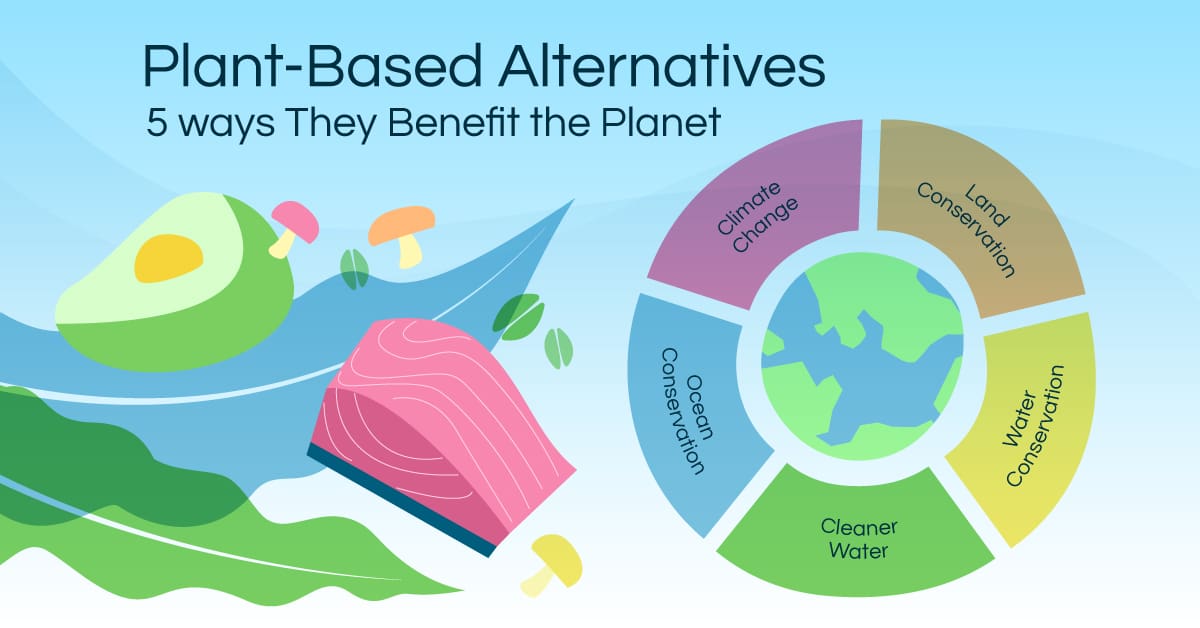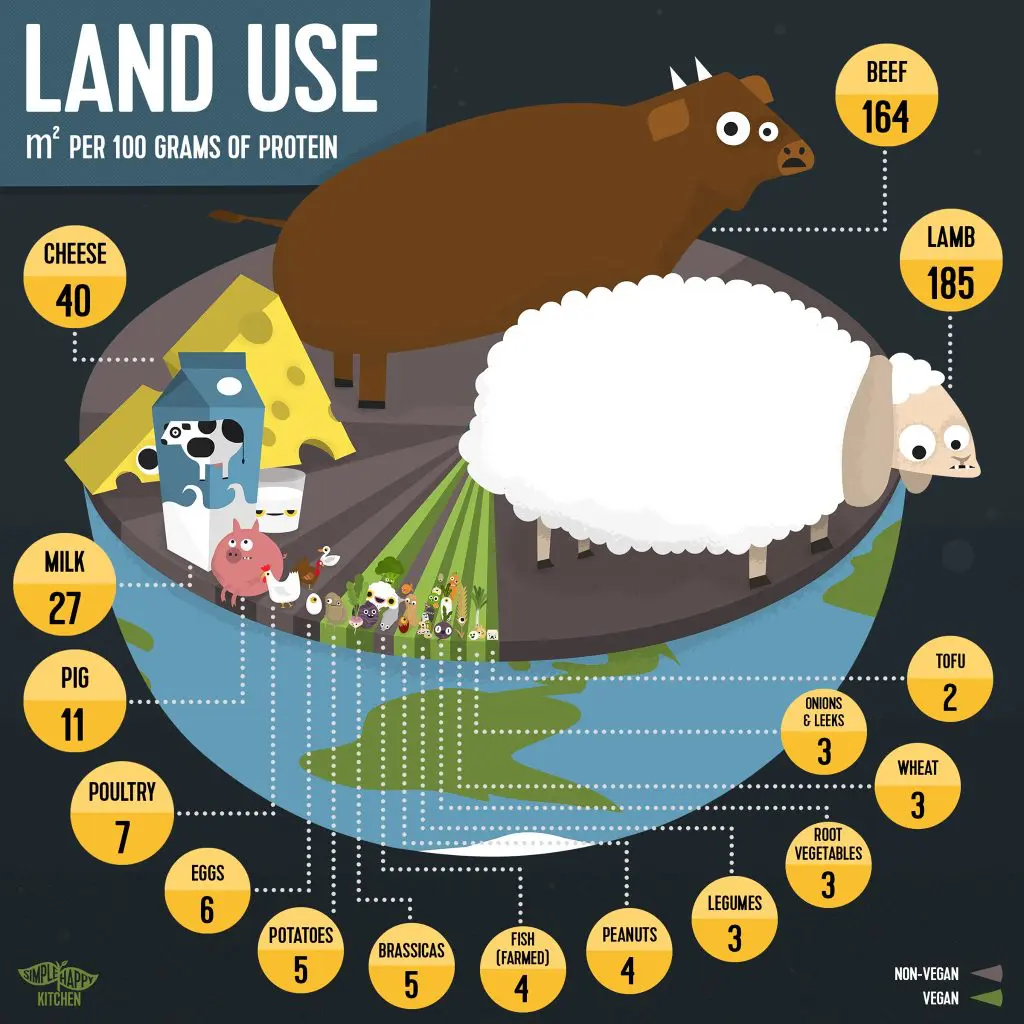When it comes to our diets, we often focus on health and taste, but have you ever considered the environmental impact of what we eat? The food choices we make not only affect our bodies but also have a significant impact on the planet. In recent years, there has been a growing recognition of the environmental benefits of plant-based diets compared to meat-based ones.
Benefits of Plant-Based Diets on the Environment

1. Plant-based diets require fewer resources such as water and land compared to meat-based diets
One of the key benefits of plant-based diets is their efficiency in resource utilization. Plant-based foods typically require less water, land, and energy to produce compared to animal products. By choosing plant-based options, individuals can help conserve valuable resources and reduce environmental strain.
2. Reducing the demand for animal agriculture can help mitigate deforestation and habitat loss
The demand for meat production often leads to deforestation for grazing and feed crops, contributing to habitat loss and biodiversity decline. Opting for plant-based diets can help alleviate the pressure on forests, protect natural ecosystems, and support biodiversity conservation efforts.
3. Choosing plant-based options can lower greenhouse gas emissions and contribute to a more sustainable food system
Animal agriculture is a significant contributor to greenhouse gas emissions, with livestock farming releasing methane—a potent greenhouse gas—into the atmosphere. By shifting towards plant-based eating, individuals can help lower overall emissions, combat climate change, and promote a more sustainable and resilient food system for the future.
Reducing Carbon Footprint with Plant-Based Eating
Plant-based foods generally have a lower carbon footprint compared to animal products. By consuming more plant-based meals, individuals can help reduce their personal carbon footprint. Transitioning to plant-based eating can have a positive impact on reducing overall carbon emissions.
Water Sustainability in Plant-Based Diets
Plant-based diets typically use less water in production compared to meat-based diets. This is because the water footprint of plant foods, such as fruits, vegetables, grains, and legumes, is generally lower than that of animal products like meat and dairy.
Choosing plant-based options can help conserve water resources and promote water sustainability. By reducing the demand for animal agriculture, which is a water-intensive industry due to the rearing of livestock and irrigation for feed crops, individuals can make a positive impact on water conservation.
Furthermore, reducing meat consumption can alleviate water pollution from agricultural runoff. Factory farms and livestock operations often result in water pollution from manure and chemical runoff, which can harm aquatic ecosystems and water quality. By opting for plant-based alternatives, individuals can help reduce the pollution of waterways and mitigate the environmental impact of agriculture on water resources.

Impact of Meat Consumption on Climate Change
Animal agriculture is a significant contributor to greenhouse gas emissions and climate change. The high demand for meat around the world leads to detrimental effects on the environment, including deforestation, soil degradation, and methane emissions.
With livestock farming being a major source of methane, a potent greenhouse gas, it is crucial to reduce meat consumption to combat climate change and limit global warming.
By choosing plant-based options over meat, individuals can make a positive impact on the environment by reducing overall greenhouse gas emissions and promoting a more sustainable food system.
Land Use and Deforestation in Meat-based Diets
Large areas of land are cleared for grazing and feed crops for livestock, leading to deforestation. This practice not only contributes to the loss of natural habitats but also has a significant impact on biodiversity. The expansion of animal agriculture is a major driver of deforestation, particularly in regions like the Amazon rainforest where vast areas of land are cleared to make way for cattle ranching.
Deforestation for animal agriculture not only results in the loss of valuable ecosystems but also contributes to greenhouse gas emissions through the release of stored carbon in trees and soil. This further exacerbates climate change and global warming.
Transitioning to plant-based diets can help reduce the pressure on forests and protect natural ecosystems. By choosing plant-based options over meat, individuals can play a role in mitigating deforestation and preserving biodiversity.

Emissions Comparison: Meat vs. Plant-Based Diets
Meat production is associated with higher emissions of greenhouse gases compared to plant-based food production. Livestock farming releases methane, a potent greenhouse gas, into the atmosphere. Switching to plant-based diets can help lower overall emissions and combat climate change.
- Meat production results in higher emissions of greenhouse gases
- Livestock farming contributes to methane emissions
- Plant-based diets can help reduce overall emissions and combat climate change
Sustainable Agriculture Practices in Plant-Based Nutrition
Plant-based agriculture can be more sustainable through the implementation of various practices that promote environmentally friendly and ethical farming methods. By adopting sustainable agriculture practices in plant-based nutrition, we can help protect ecosystems, enhance biodiversity, and ensure the long-term health of our planet. Here are some key sustainable agriculture practices in plant-based nutrition:
Organic Farming Methods
Organic farming eliminates the use of synthetic chemicals and pesticides, promoting soil health and biodiversity. By choosing organic plant-based foods, you are supporting a more sustainable and environmentally friendly agricultural system.
Crop Rotation
Rotation of crops helps improve soil fertility, reduce the risk of pests and diseases, and promote biodiversity. By incorporating crop rotation practices in plant-based agriculture, farmers can maintain healthy soils and sustainable food production.
Agroforestry
Agroforestry integrates trees and shrubs into agricultural landscapes, providing multiple benefits such as carbon sequestration, biodiversity conservation, and soil health improvement. By practicing agroforestry in plant-based agriculture, farmers can create resilient and sustainable farming systems.
Permaculture
Permaculture is a design system that mimics natural ecosystems to create sustainable and self-sufficient agricultural systems. By implementing permaculture principles in plant-based farming, farmers can work in harmony with nature, reduce waste, and promote ecological balance.
Supporting sustainable agriculture in plant-based nutrition is essential for promoting environmental conservation, mitigating climate change, and ensuring food security for future generations.

Reducing Environmental Pollution through Plant-Based Choices
Plant-based diets result in lower pollution from agricultural chemicals and waste compared to animal agriculture. Choosing plant-based options can help reduce pollution of waterways and soil from livestock operations. Eating plant-based can contribute to cleaner air and water by minimizing pollution from intensive farming practices.
- Plant-based diets reduce reliance on pesticides and fertilizers
- Reduce water contamination from animal waste runoff
- Less air pollution from industrial livestock operations















































